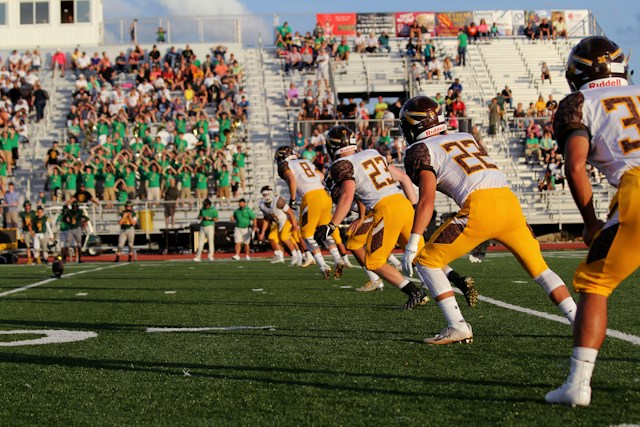In this modern era, sports have become an integral part of society, affecting and being affected by social, political, and cultural contexts. With a focus on international competitions, we delve into the exploration of how sports influence national pride and identity.
The Societal Impact of International Sporting Events
In any community, a sports event isn’t just a game, it’s a festival of unity that brings people together from different walks of life. It’s a platform that fosters a sense of community and shared identity amongst its participants and spectators. When these events go international, the impact magnifies, and the level of engagement it commands is unparalleled.
Cela peut vous intéresser : How do sports organizations address the mental and emotional well-being of their fan base?
Let’s take, for instance, the Olympics. Participating athletes don’t just represent themselves; they carry on their shoulders the pride of millions of people from their home country. The event becomes a stage for countries to showcase their prowess, their values, their culture, and their character.
Sports as a Catalyst for National Pride
The power of sports to evoke a sense of national pride is undeniable. Every time a country’s team or athlete steps into an international arena; it serves as a symbolic representation of the nation itself. As spectators cheer on their teams, they are not just supporting a group of athletes, but expressing their pride in the country they hail from.
Cela peut vous intéresser : How do athletes use technology to monitor and enhance their physical performance?
Take the Football World Cup, for example. When the national team steps onto the field, they are not mere players. They are ambassadors of the country’s honor and pride. Their victory becomes the nation’s victory, their defeat, the nation’s defeat. The emotions run high, and every goal, every point scored, becomes an assertion of the country’s strength, its resilience, its spirit.
Sports and the Formation of National Identity
Sports also play a pivotal role in shaping national identity. It helps foster a sense of belonging, camaraderie, and unity among the people. The shared experiences, the collective euphoria of victories, the heartbreak of losses, all serve to strengthen the bond among citizens and enhance their sense of national identity.
In countries with diverse cultures and ethnicities, sports can serve as a unifying force. It provides a platform where differences are put aside, and a shared love for the sport and the nation takes precedence. A prime example of this would be the Cricket World Cup. Regardless of caste, creed, or religion, people come together as one, cheering for their national team.
The Political Dimension of Sports
Though sports are primarily a source of entertainment, they often find themselves intertwined with politics. International sporting events are a stage where political tensions are both manifested and amplified. It’s not rare to find a sports event tainted with political undertones.
Consider the Olympic Games, which have often been the epicenter of political controversy. From the Black Power salute in the 1968 Mexico City Olympics to the boycott of the 1980 Moscow Olympics, these instances highlight how sports events can be a platform for political expression.
However, sports also have the power to transcend political boundaries. Nelson Mandela used rugby, a sport once associated with apartheid, to unite a racially divided South Africa. The 1995 Rugby World Cup serves as a testament to the power of sports in bridging political divides and fostering national unity.
Sports and the City
International sporting events also have a profound impact on the cities that host them. These events bring in significant tourism and media attention, boosting the local economy.
Cities get an opportunity to showcase themselves to the world, to highlight their culture, their history, their charm. The city becomes a symbol of the nation’s hospitality, its capabilities, and its aspirations.
The FIFA World Cup, for instance, affords host cities the chance to shine on a global stage. Infrastructure is revamped, landmarks are highlighted, and the whole city is teeming with national pride.
As we’ve seen, sports have a far-reaching impact on national pride and identity. They foster unity, evoke pride, shape national identity, and even become intertwined with politics. The love for sports and the love for one’s country often go hand in hand, and international competitions serve as the perfect stage to express both.
Sports, Patriotism and the National Anthem
Home or away, it’s a time-honored tradition to play the national anthem prior to the start of any international sporting event. This has a deep psychological impact not only on the athletes but also on spectators. Hearing the national anthem in an international arena can spark a renewed sense of pride and patriotism in the hearts of the citizens.
The anthem serves as an auditory symbol of national identity and unity. It reminds the audience and the players of their shared heritage, shared values, and shared dreams. As everyone stands still with their hand on their heart, it creates a moment of unity and solidarity, a moment where differences of race, religion, and politics are put aside.
During international sport events, the singing of the national anthem becomes a ceremony of nationalistic expression. In the 1992 Winter Olympics, when the Bosnia and Herzegovina team participated for the first time post-independence, their national anthem’s playing was a poignant moment that symbolized their resilience and strength as a nation.
Sports and Its Role in Fostering a Shared Sense of History
Sports events also serve as a conduit for nations to remember and celebrate their history. They allow nations to relive their glorious past, acknowledge their struggles, and inspire future generations.
In 2000, Cathy Freeman, an indigenous Australian athlete, lit the Olympic flame in Sydney. This was more than just a sporting event; it was a moment that recognized the contribution of the indigenous community to the Australian national identity. It was a statement that acknowledged their place in Australian history and society.
Sports can also offer a platform to mend historical wounds. For instance, during the 1995 Rugby World Cup in South Africa, the national team’s victory was a symbol of unity in a nation recovering from the ravages of apartheid.
Conclusion
In summary, the impact of sports on national pride and identity during international competitions is far-reaching. Sports events are much more than just games; they are a platform where nations showcase their culture, their values, and their prowess. They are a catalyst for national pride, fostering a sense of unity and shared identity amongst citizens.
Sports also play a pivotal role in shaping the national identity and serving as a conduit for nations to remember and celebrate their history. They unify countries with diverse cultures and ethnicities, transcending political and social divides.
Finally, international sporting events leave a lasting impact on the host cities, contributing to their economy and allowing them to showcase their culture and hospitality to the world.
With every goal scored, every anthem sung, every victory celebrated, sports continue to shape our national identities and inflame our national pride. So, the next time you watch an international sport event, remember – it’s not just a game, it’s a celebration of who we are as a nation.






